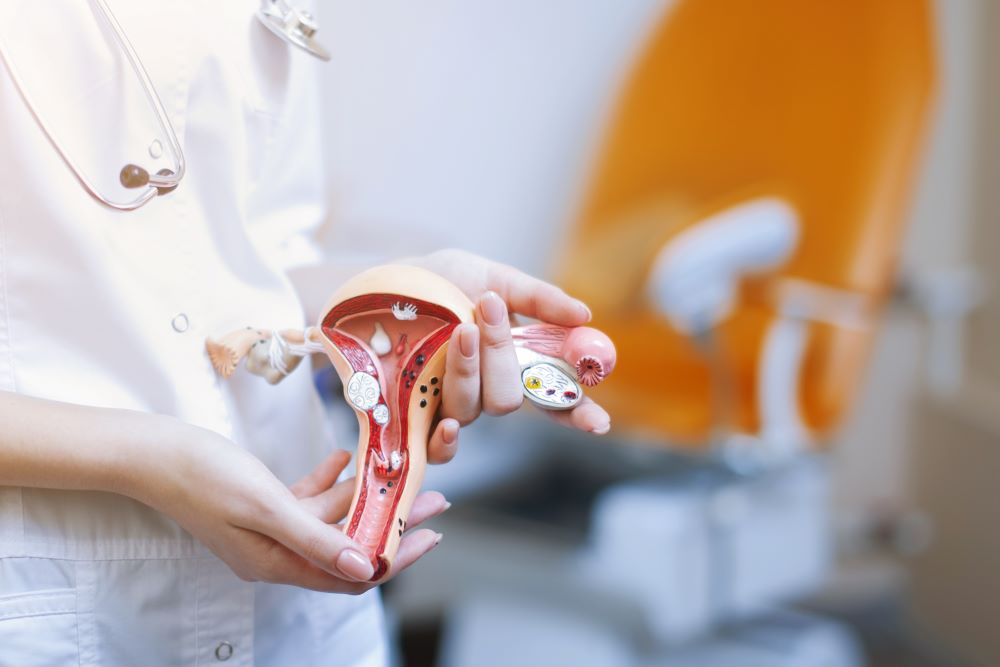Claudia Useda is one of the few Spanish-speaking gynecologists in Westchester County. So we, at Formé Medical Center, are honored to have her on our medical team. This time, we conducted an interview to solve some of the most common doubts related to the area of gynecology in the different stages of a woman.
At what age should the first menstrual period be expected?
This can vary. Generally between 11 or 13 years but there are cases in which it can come at the age of 8 years or 15 years. It all depends on the development of the body.
What can you expect from the first period?
First of all, it is not consistent. Many people hope that from the beginning, the menstruation is regular when, in fact, it may arrive the first time and the following month not or that the cycle is interrupted for 3 or 6 months. You can expect it to arrive in abundance or last 10 days. But it is a process that stabilizes over time. Secondly, emotional changes should be expected. This is a change that generates anguish and anxiety in girls because they do not know how to react, how to face pain or with whom to talk about it.
Should you visit a gynecologist as soon as the first menstrual cycle is experienced?
No! In general, it could be said that at the age of 21 you should visit a gynecologist for a general check-up and see if everything has developed normally or earlier if you have symptoms that something is happening with your body. But, in the case of women aged 13 or 15, it is only recommended if they have a problem that their pediatrician cannot solve.
Is it normal to have vomiting or chronic pain during your period?
It depends on the pain. Almost all women experience back pain or cramps that can be treated with an analgesic. But if the symptoms that accompany menstruation prevent the performance of normal tasks such as working, taking care of their children or generating vomiting during the days that the cycle lasts, it is not normal and it is recommended that you visit your doctor to see what is happening. You may need a medicine to help you control these symptoms or you may be suffering from endometriosis or another disease.
What is endometriosis?
A basic answer is that the endometrium, which are the cells that we expel every month during menstruation, are not inside the womb as it should be but are also outside or behind it, causing serious symptoms such as bleeding, colic, pain and adhesions that can cause infertility. It is a disease treatable with medicines or, in other cases, with surgery.
Is it very common to get an infection?
A fungal infection is very common in women because although fungi are natural organisms that we have throughout the body, there are conditions that facilitate their reproduction, generating itching, burning, a thick discharge, pain and irritation.
What is the treatment for this?
Fluconazole vaginal creams or pills for vaginal yeast infections. There are many options on the market from the same family that are specific for fungi. It is not an antibiotic. It is an antifungal that prevents the growth of the fungus.
Does heavy flow mean there is infection?
Not necessarily. It is important to keep in mind that the discharge is normal since it is the way in which the vagina cleans itself. If there is no burning, itching or bad smell, then it could be said that there is no infection.
Is it okay to use protectors for flow management?
There are occasions when it is the protectors that cause irritation because they do not allow normal ventilation of the area. They can also cause allergic reactions due to their components. So it is recommended that if a woman has so much flow, it is necessary to use protectors. First check with your gynecologist to make sure everything is okay in the body.
At Formé, we want to support the Latino community with doctors from different specialties willing to accompany them in the processes they have to face. Call us at 914-723-4900 and receive more information about our services.
At Formé, our mission is your health!








